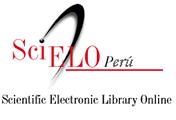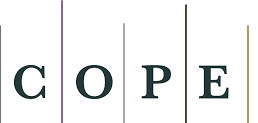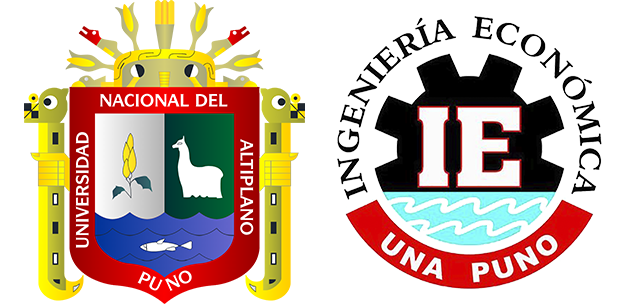Efectos del COVID-19 en el desperdicio de alimentos en los hogares de la ciudad de Loja, Ecuador
DOI:
https://doi.org/10.26867/se.2023.v12i1.149Palabras clave:
Teoría del comportamiento planificado (TPB), Ecuaciones estructurales de mininos cuadrados parciales (PLS-SEM), Conciencia ambiental, Normas socialesResumen
En Ecuador, antes del inicio de la pandemia global, se desperdiciaban 939 toneladas métricas de alimentos anuales, lo cual, equivale a una pérdida de 332 millones de dólares al año. Es así que, en la presente investigación se trata de examinar el efecto del COVID-19 en el desperdicio de alimentos en los hogares de la ciudad de Loja durante la pandemia. Para este análisis, se utilizó la Teoría del Comportamiento Planificado (TPB; por sus siglas en ingles) y las ecuaciones estructurales de mínimos cuadrados parciales (PLS-SEM; por sus siglas en ingles). Los resultados obtenidos muestran que las normas sociales, la conciencia ambiental y la COVID-19 tienen valores significativos e inciden en el desperdicio de alimentos de los hogares de la ciudad de Loja. Conforme a ello, si antes de la pandemia el comportamiento y los hábitos de los consumidores hubieran cambiado, el desperdicio de alimentos hubiera disminuido. Por lo cual, es importante promover campañas de donación de alimentos a las personas más necesitadas y, por otro lado, realizar una lista de compras y crear un plan de comida para comprar y preparar los alimentos necesarios y mitigar el desperdicio de alimentos en la ciudad de Loja.
Métricas
Referencias
Ajzen, I. (1985). From Intentions to Actions: A Theory of Planned Behavior. Berlin: SSSP Springer Series i,.n Social Psychology.
Ajzen, I. (1991). The theory of planned behavior. Organizational Behavior and Human Decision Processes, 179-211.
Ajzen, I. (2019). Constructing a theory of planned behavior questionnaire.
Ajzen, I., & Fishbein, M. (1980). Understanding attitudes and predicting social behavior. New Jersey: Prentice-Hall, Inc.
Ajzen, I., & Fishbein, M. (2000). Attitudes and the attitude-behavior relation: Reasoned and automatic processes. European review of social psychology, 11(1), 1-33.
Allahyari, M. S., Marzban, S., El Bilali, H., & Ben Hassen, T. (2022). Effects of COVID-19 pandemic on household food waste behaviour in Iran. Heliyon, e11337. https://doi.org/10.1016/j.heliyon.2022.e11337
Babbitt, C. W., Babbitt, G. A., & Oehman, J. M. (2021). Behavioral impacts on residential food provisioning, use, and waste during the COVID-19 pandemic. Sustainable Production and Consumption, 28, 315–325. https://doi.org/10.1016/j.spc.2021.04.012
Barnard, C. I. (1938). The functions of the executive. Thirtieth anniversary edition.
Bogevska, Z., Berjan, S., El Bilali, H., Sadegh Allahyari, M., Radosavac, A., & Davitkovska, M. (2022). Exploring food shopping, consumption and waste habits in North Macedonia during the COVID-19 pandemic. Socio-Economic Planning Sciences, 82, 101150. https://doi.org/10.1016/j.seps.2021.101150
Burlea-Schiopoiu, A., Ogarca, R. F., Barbu, C. M., Craciun, L., Baloi, I. C., & Mihai, L. S. (2021). The impact of COVID-19 pandemic on food waste behaviour of young people. Journal of Cleaner Production, 294, 126333. https://doi.org/10.1016/j.jclepro.2021.126333
Cariappa, A. A., Acharya, K. K., Adhav, C. A., Sendhil, R., & Ramasundaram, P. (2022). COVID-19 induced lockdown effects on agricultural commodity prices and consumer behaviour in India – Implications for food loss and waste management. Socio-Economic Planning Sciences, 82, 101160. https://doi.org/10.1016/j.seps.2021.101160
Carmines, E., & Zeller, R. (1979). Reliability and Validity Assessment. 1. Beverly Hills: Sage Publications.
Chin, W. W. (1998). The partial least squares approach to structural equation modeling. Modern methods for business research, 295(2), 295-336.
Clark, J. M. (1918). Economics and modern psychology: I and II. Journal of Political Economy, 26, 1-30.
Diamantopoulos, A., & Siguaw, J. A. (2006). Formative versus reflective indicators in organizational measure development: A comparison and empirical illustration. British journal of management, 17(4), 263-282.
Ellison, B., & Kalaitzandonakes, M. (2020). Food Waste and Covid-19: Impacts along the supply chain. Farmdoc Daily, 10, 164.
Fornell, C., & Larcker, D. F. (1981). Structural equation models with unobservable variables and measurement error: Algebra and statistics.
Hair, J. F., Hult, G. T. M., Ringle, C. M., Sarstedt, M., (2017). A primer on partial least squares structural equation modeling (2nd ed.). Thousand Oaks, CA: Sage.
Henseler, J., Dijkstra, T. K., Sarstedt, M., Ringle, C. M., Diamantopoulos, A., Straub, D. W., Ketchen, D. J., Hair, J. F., Hult, G. T. M., y Calantone, R. J. 2014. Common Beliefs and Reality about Partial Least Squares: Comments on Rönkkö y Evermann (2014), Organizational Research Methods, 17(2): 182-209.
Hu, L.-t., y Bentler, P. M. (1998). Fit Indices in Covariance Structure Modeling: Sensitivity to Underparameterized Model Misspecification, Psychological Methods, 3(4): 424-453.
Instituto Nacional de Encuestas y Censos. (2010). Censo de Población y Vivienda.
Iranmanesh, M., Ghobakhloo, M., Nilashi, M., Tseng, M.-L., Senali, M. G., & Abbasi, G. A. (2022). Impacts of the COVID-19 pandemic on household food waste behaviour: A systematic review. Appetite, 176, 106127. https://doi.org/10.1016/j.appet.2022.106127
Jribi, S., Ben Ismail, H., Doggui, D., & Debbabi, H. (2020). COVID-19 virus outbreak lockdown: What impacts on household food wastage? Environment, Development and Sustainability, 22(5), 3939–3955. https://doi.org/10.1007/s10668-020-00740-y
Lahath, A., Omar, N. A., Ali, M. H., Tseng, M.-L., & Yazid, Z. (2021). Exploring food waste during the COVID-19 pandemic among Malaysian consumers: The effect of social media, neuroticism, and impulse buying on food waste. Sustainable Production and Consumption, 28, 519–531. https://doi.org/10.1016/j.spc.2021.06.008
Laila, A., von Massow, M., Bain, M., Parizeau, K., & Haines, J. (2022). Impact of COVID-19 on food waste behaviour of families: Results from household waste composition audits. Socio-economic planning sciences, 82, 101188. https://doi.org/10.1016/j.seps.2021.101188
Maguiña Vargas, C., Gastelo Acosta, R., & Tequen Bernilla, A. (2020). El nuevo Coronavirus y la pandemia del Covid-19. Revista Medica Herediana, 31(2), 125–131. https://doi.org/10.20453/rmh.v31i2.3776
Martínez Ávila, M., & Fierro Moreno, E. (2018). Aplicación de la técnica PLS-SEM en la gestión del conocimiento: un enfoque técnico práctico / Application of the PLS-SEM technique in Knowledge Management: a practical technical approach. RIDE Revista Iberoamericana Para La Investigación Y El Desarrollo Educativo, 8(16), 130–164. https://doi.org/10.23913/ride.v8i16.336
Maslow, A. (1958). A Dynamic Theory of Humam Motivation. Understanding human motivation, 26-47.
McGregor, D. (1966). The human side of enterprise. Classics of organization theory, 6-15.
Mejía, D., Díaz, M. F., Charry, A., Enciso, K., Ramírez, Ó., & Burkart, S. (2021). “Quédate en casa” Los efectos de la cuarentena por COVID 19 en el desperdicio de alimentos domésticos en Colombia. Cgiar.org. https://doi.org/https://hdl.handle.net/10568/115965
Ngoh, C., y Groening, C. (2022). The effect of COVID-19 on consumers’ channel shopping behaviors: A segmentation study. Journal of Retailing and Consumer Services, 68, 103065. https://doi.org/10.1016/j.jretconser.2022.103065
Nunnally, J. C. (1978). An overview of psychological measurement. Clinical diagnosis of mental disorders, 97-146.
Organización de las Naciones Unidas para la Agricultura y la Alimentación. (2022). Código de conduct voluntario para la reducción de las pérdidas y el desperdicio de alimentos.
Palacios, J. E. & Zapata, M. (2022). Diseño de un modelo de negocio sostenible para reducir el desperdicio de alimentos en restaurantes de Guayaquil. Universidad Católica de Santiago de Guayaquil 223.180. https://doi.org/http://repositorio.ucsg.edu.ec/handle/3317/18336
Pareto, V. (1906). Manual of political economy: A critical and variorum translation edition. Economic quilibrium, 173-190.
Pérez Abreu, M. R., Gómez Tejeda J. J., Dieguez Guach R. A.. Características clínico-epidemiológicas de la COVID-19. Revista Habanera de Ciencias Médicas. 2020;19 (2):1-15.
Principato, L., Secondi, L., Cicatiello, C., & Mattia, G. (2022). Caring more about food: The unexpected positive effect of the Covid-19 lockdown on household food management and waste. Socio-Economic Planning Sciences, 82, 100953. https://doi.org/10.1016/j.seps.2020.100953
Organización de las Naciones Unidas para la Alimentación y la Agricultura. (2019). El estado mundial de la agricultura y la alimentación 2019: Progresos en la lucha contra la pérdida y el desperdicio de alimentos. Food & Agriculture Org., 2019.
Rodgers, R. F., Lombardo, C., Cerolini, S., Franko, D. L., Omori, M., Linardon, J., Guillaume, S., Fischer, L., & Tyszkiewicz, M. F. -. (2021). “Waste not and stay at home” evidence of decreased food waste during the COVID-19 pandemic from the U.S. and Italy. Appetite, 160, 105110. https://doi.org/10.1016/j.appet.2021.105110
Shigemura, J., Ursano, R. J., Morganstein, J. C., Kurosawa, M., y Benedek, D. M. (2020). Public responses to the novel 2019 coronavirus (2019‐nCoV) in Japan: Mental health consequences and target populations. Psychiatry and clinical neurosciences, 74(4), 281.
Smith, A. (1776). An Inquiry into the Nature and Causes of the Wealth of Nations.
Strotmann, C., Baur, V., Börnert, N., & Gerwin, P. (2022). Generation and prevention of food waste in the German food service sector in the COVID-19 pandemic – Digital approaches to encounter the pandemic related crisis. Socio-Economic Planning Sciences, 82, 101104. https://doi.org/10.1016/j.seps.2021.101104
Thaler, R. H. (2018). Economía del comportamiento: pasado, presente y futuro. Revista de Economía Insititucional, 20, 10.
Theodoridis, P. K., & Zacharatos, T. V. (2022). Food waste during Covid- 19 lockdown period and consumer behaviour – The case of Greece. Socio-Economic Planning Sciences, 83, 101338. https://doi.org/10.1016/j.seps.2022.101338
Vargas-Lopez, A., Cicatiello, C., Principato, L., & Secondi, L. (2022). Consumer expenditure, elasticity and value of food waste: A Quadratic Almost Ideal Demand System for evaluating changes in Mexico during COVID-19. Socio-Economic Planning Sciences, 82, 101065. https://doi.org/10.1016/j.seps.2021.101065
Vittuari, M., Masotti, M., Iori, E., Falasconi, L., Gallina Toschi, T., & Segrè, A. (2021). Does the COVID-19 external shock matter on household food waste? The impact of social distancing measures during the lockdown. Resources, Conservation and Recycling, 174, 105815. https://doi.org/10.1016/j.resconrec.2021.105815
Willis, L., Lee, E., Reynolds, K. J., & Klik, K. A. (2020). The Theory of Planned Behavior and the Social Identity Approach: A New Look at Group Processes and Social Norms in the Context of Student Binge Drinking. Eur J Psychol, 357-383.
Zhao, N., & You, F. (2021). Food-energy-water-waste nexus systems optimization for New York State under the COVID-19 pandemic to alleviate health and environmental concerns. Applied Energy, 282, 116181. https://doi.org/10.1016/j.apenergy.2020.116181
Descargas
Publicado
Número
Sección
Licencia
Derechos de autor 2023 Pablo Ponce, Juan Medina

Esta obra está bajo una licencia internacional Creative Commons Atribución 4.0.















